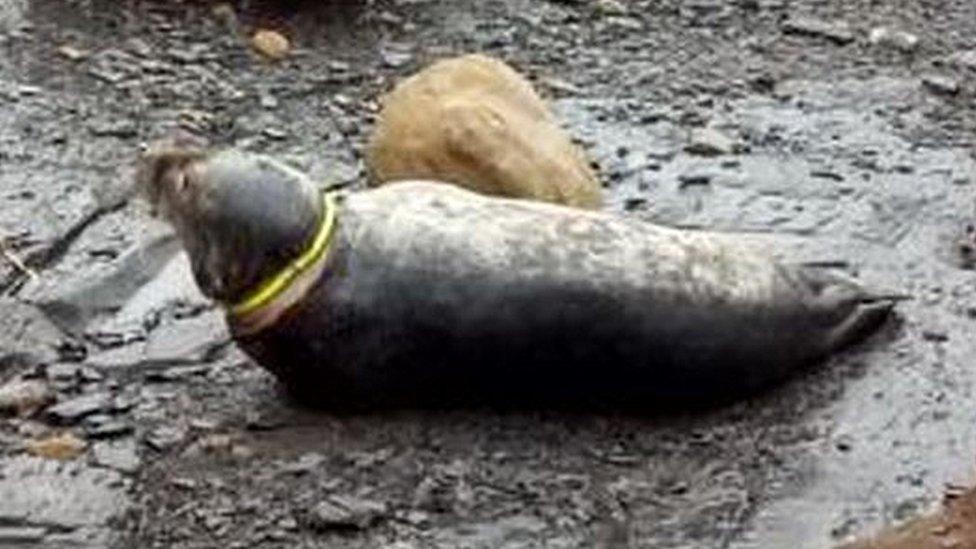Plastic ring injury seal found in Norfolk 'had worst wound'
- Published
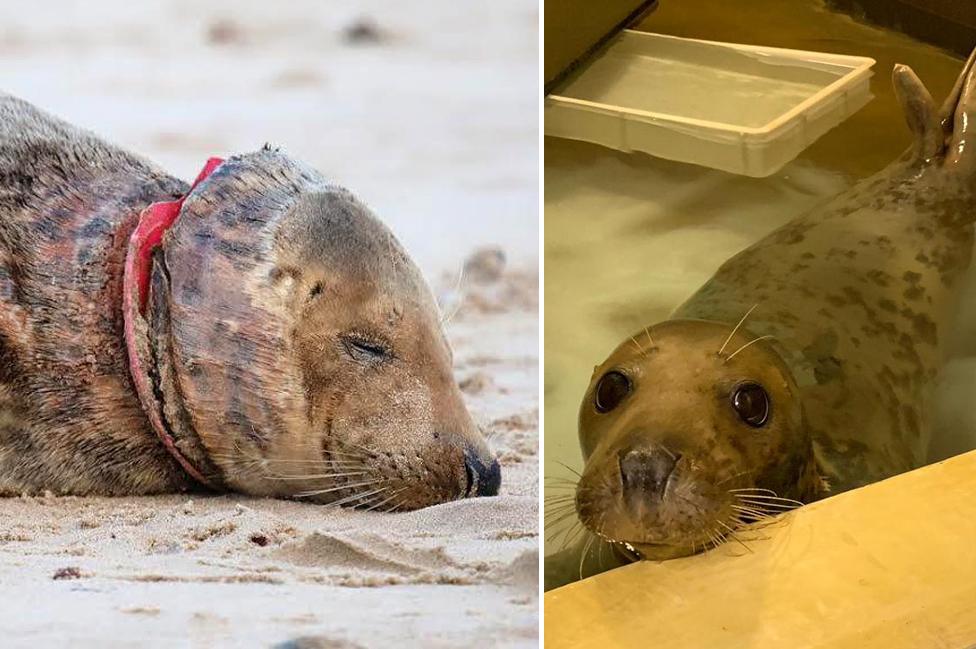
The plastic ring had cut deep into the seal's neck causing the skin to become infected
A seal found with a plastic ring embedded in its neck had "one of the worst types of wound" seen by experts.
The Atlantic grey seal was found by the Friends of Horsey Seals group on Waxham beach, in Norfolk, in December.
Nicknamed Pinkafo by staff, she was taken to the RSPCA centre at East Winch where the plastic had to be cut out and the infection treated.
Centre manager Alison Charles said the seal had made a remarkable recovery and was set to return to the wild in April.
"This is one of the worst types of wound we've seen and I've never quite seen that type of recovery," said Mrs Charles.
"We don't quite know what happened, but it's likely she was playing with the ring in the water and it got stuck on her head.
"It was completely embedded into her neck as the skin and infected tissue had grown over it."
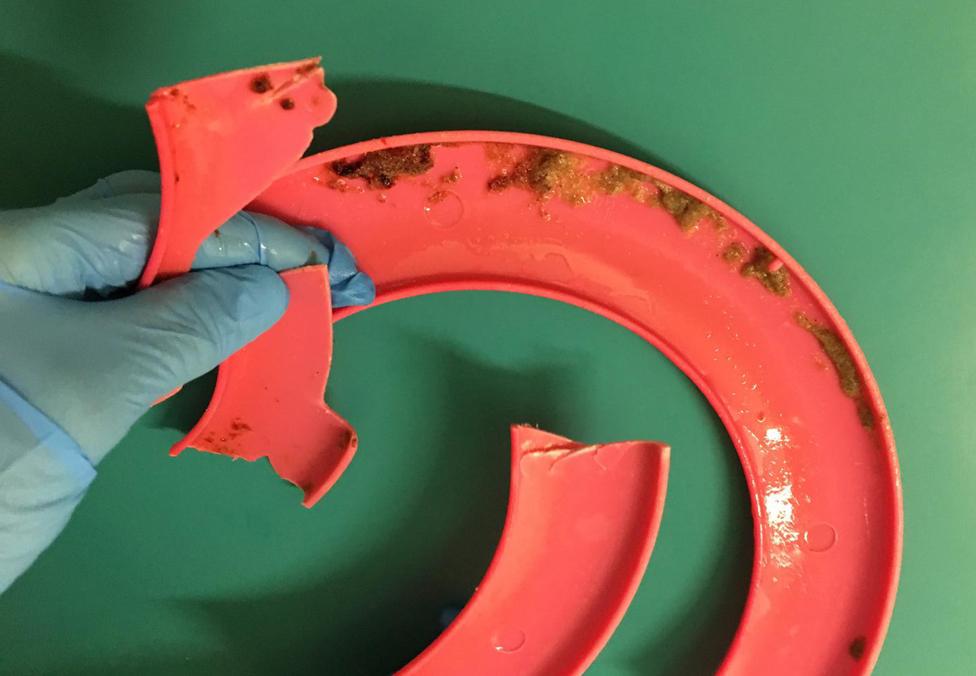
The plastic had become so hard and decayed the vet had to use garden secateurs to remove it
Warning: Graphic image below
The plastic was removed in a 30-minute procedure but it was feared the seal might not survive.
"She was really poorly for three days - she lay on her back with her neck in salt water which we can only think she found comfortable," said Mrs Charles.
"People were so generous in their help and donations of salt for her pool - it just kept on coming."
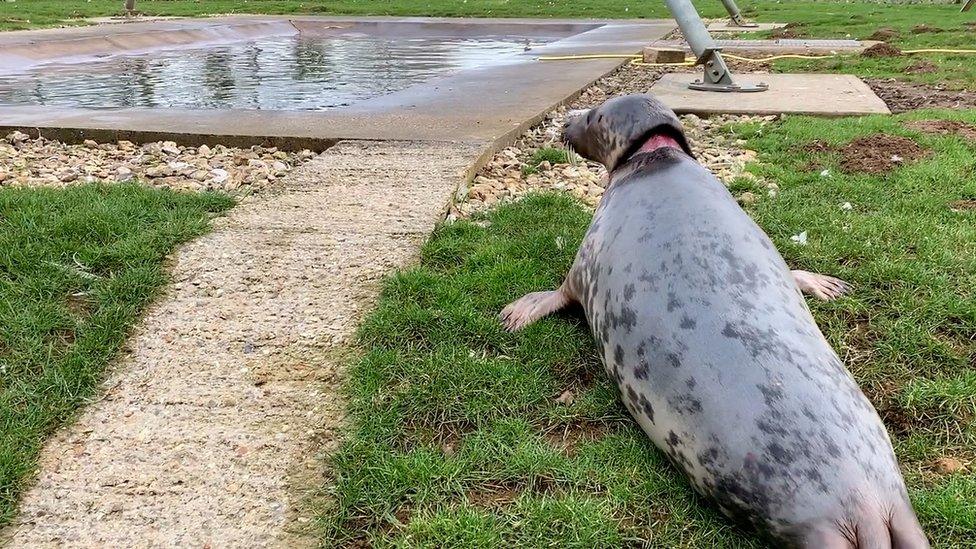
The seal was moved to a large open-air pool to aid her recovery
After two weeks in isolation, the seal was moved to an outdoor pool for strengthening exercises at the end of January, ahead of her expected release in April.
Mrs Charles said the wound needed to heal fully before the seal would be released.
RSPCA figures, external show the number of animals affected by plastic litter in England and Wales is at an all-time high. In Norfolk, the figure rose from 11 to 34 between 2015 and 2018.
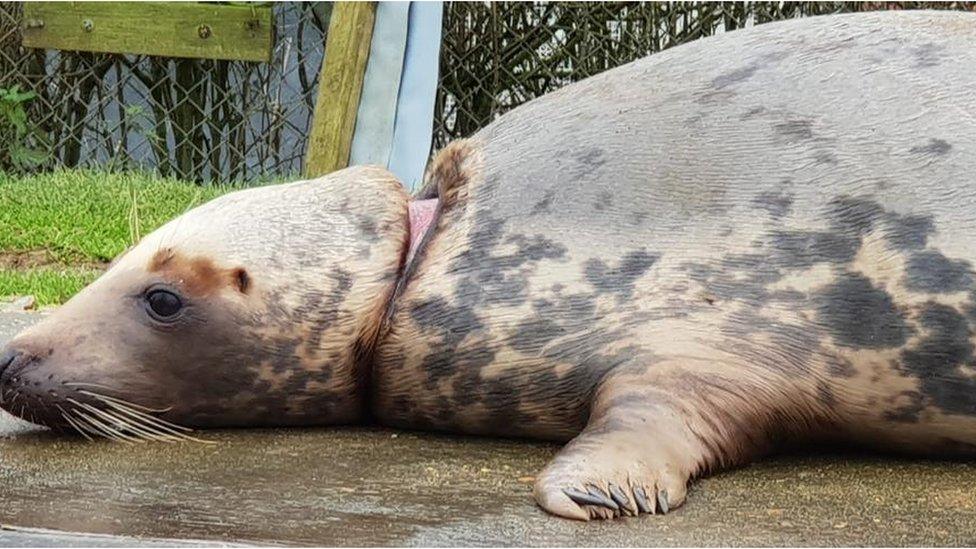
Pinkafo is making a good recovery, staff said
- Published5 February 2019
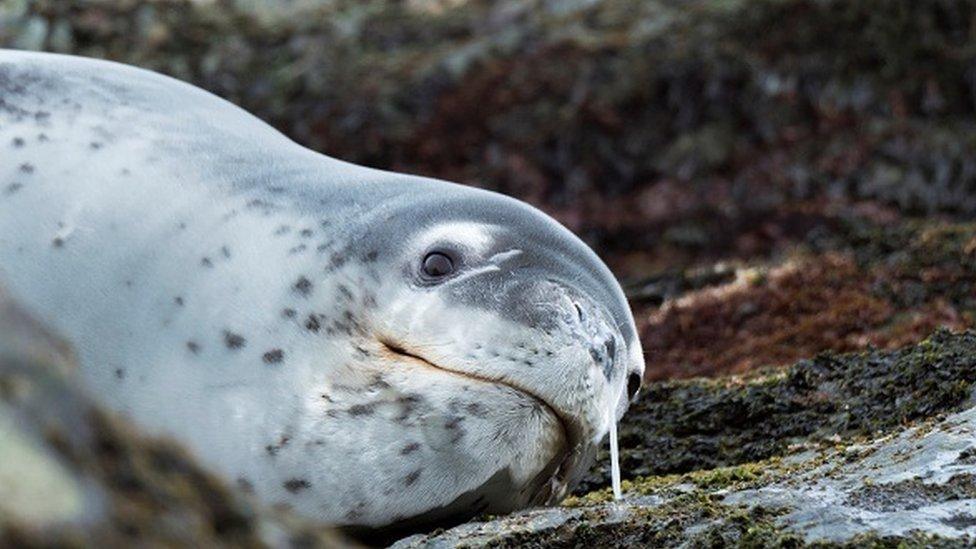
- Published21 January 2019
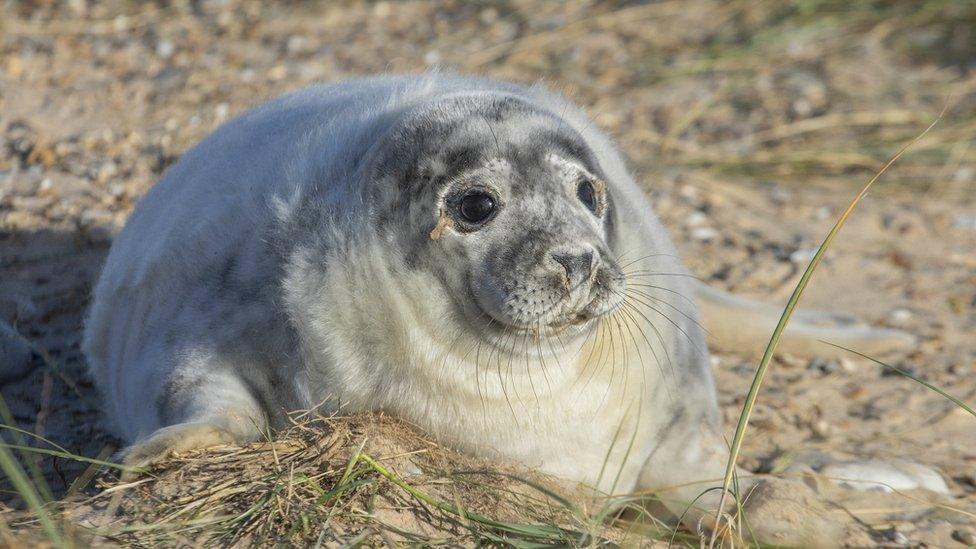
- Published19 December 2018
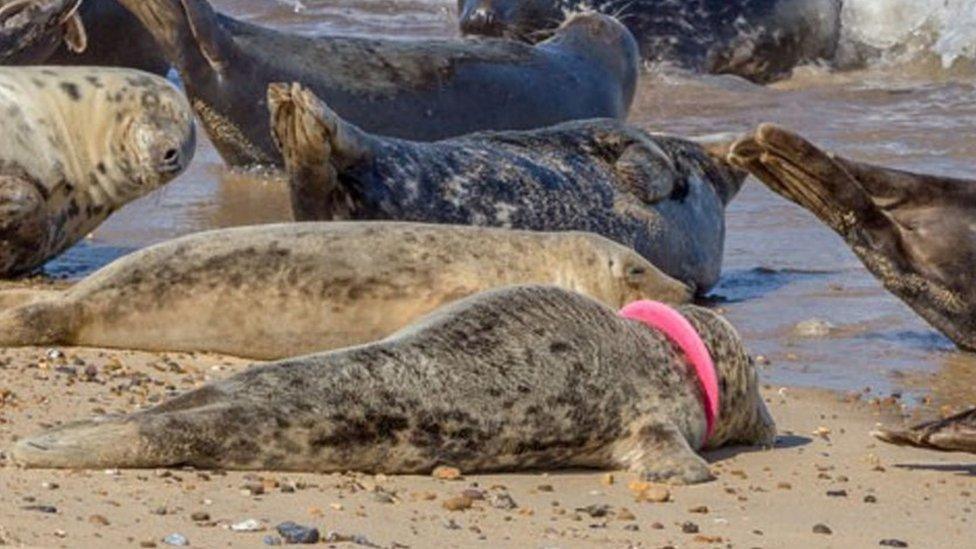
- Published31 May 2018
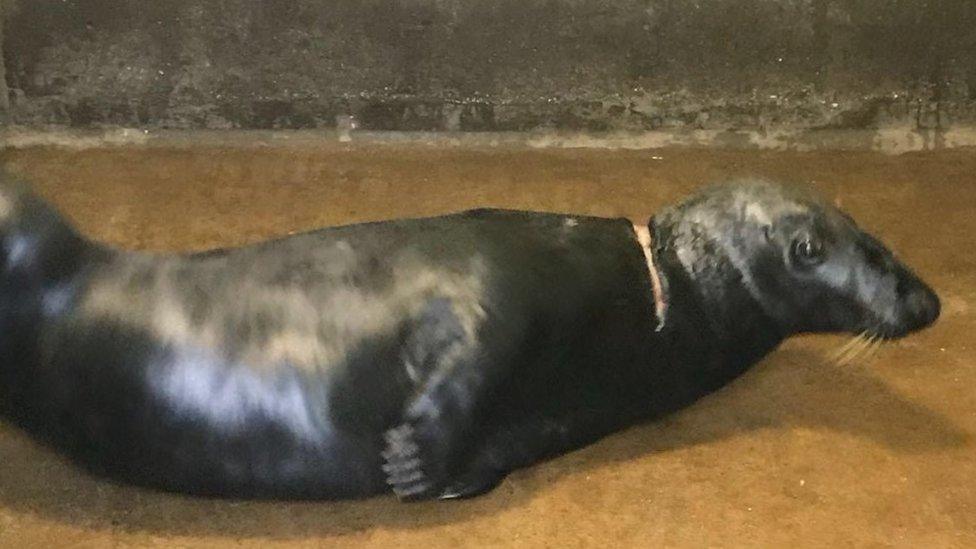
- Published21 February 2018
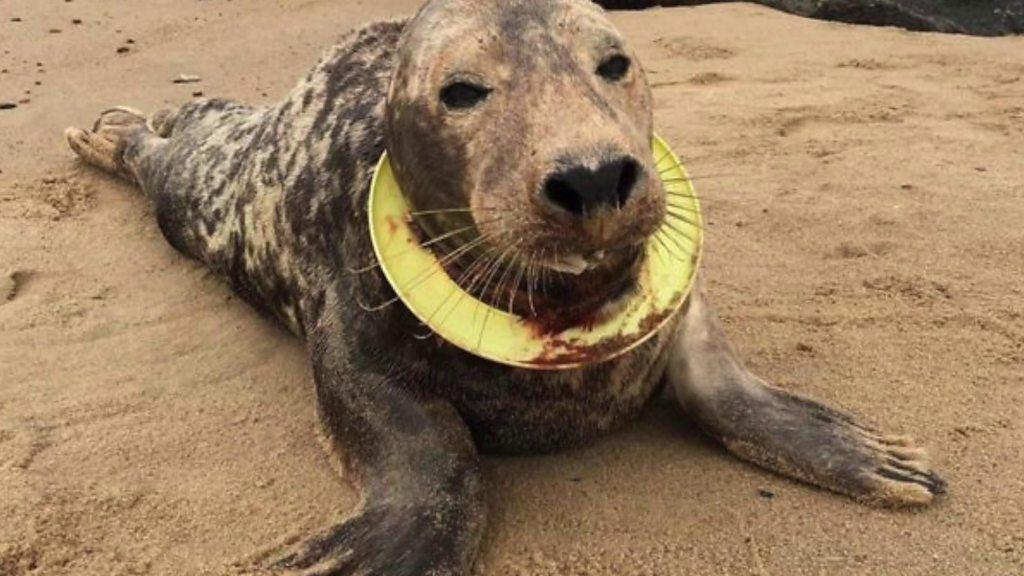
- Published14 December 2017
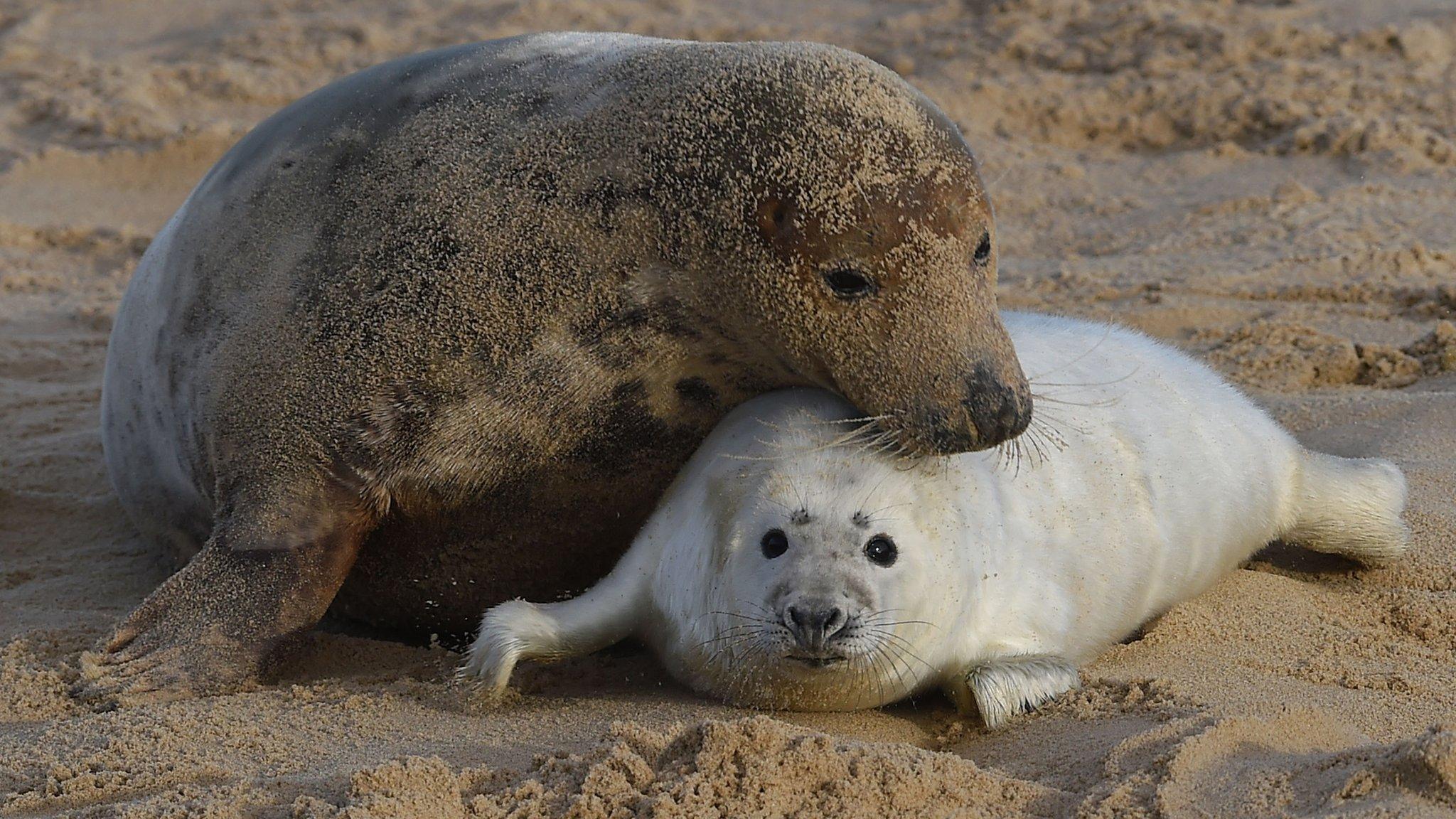
- Published15 September 2017
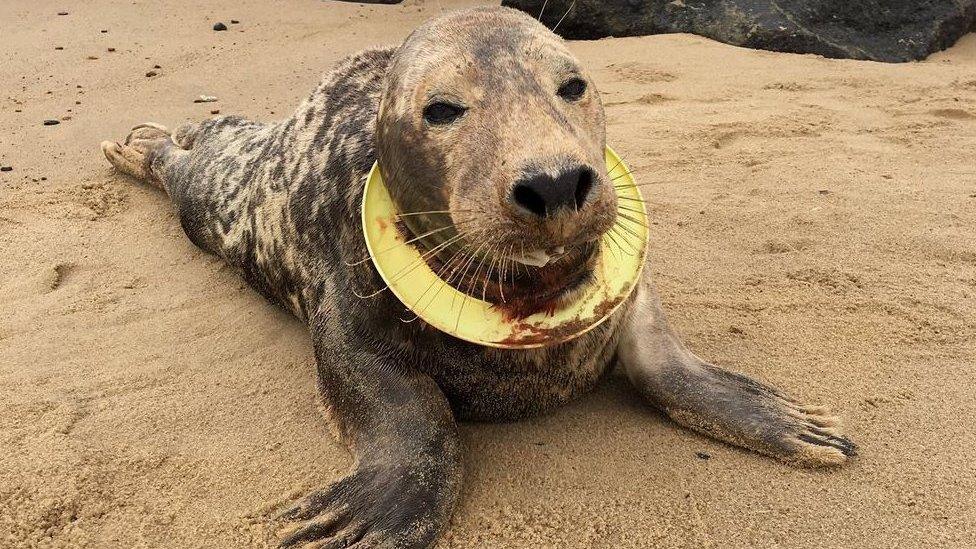
- Published25 August 2017
